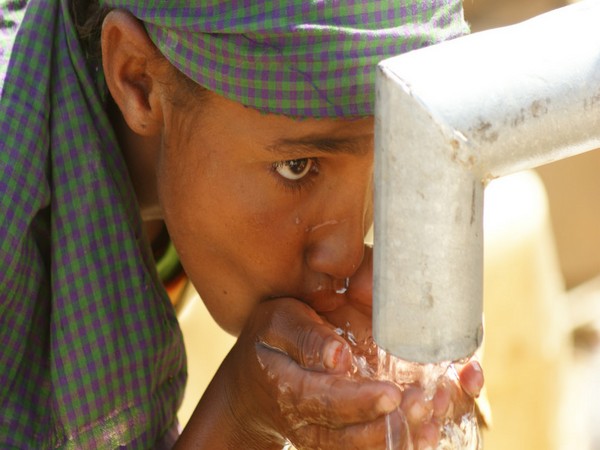Darbhanga: With the launch of cost-effective innovative water project, Bihar will soon provide the cheapest drinking water in the world.
The first of such a water project was launched in Bihar’s Darbhanga district on Saturday, by Sulabh International, an organisation that introduced the concept of ‘Sulabh Sauchalya’ in the country.
With the help of this project, the people will easily be able to get pure and clean water only in 50paisa/litre.
The ‘Sulabh Jal’ project converts contaminated pond and river water into safe drinking water.
The founder of Sulabh International Dr. Bindeshwar Pathak laid the foundation of the project at Haribol Pond in Darbhanga Nagar Nigam premises.
Darbhanga MLA Sanjay Saraogi and District Magistrate Chandrasekhar Prasad Singh were also present here on the occasion.
Speaking on the occasion, Dr Pathak said, “We have succeeded in producing pure drinking water at a very nominal cost by this new technology, which has not yet been introduced anywhere in the world. Villagers may get a direct benefit out the project.”
“We have selected Darbhanga for this water project. The project will be functional by December,” he added.
The water purification process has a capacity to purify 8,000 litres of water per day at nominal cost.
“Clean drinking water will be available at 50 paise/liter. We will also plant trees on the bank of Haribol tank here. It would be managed by Self Help group of Darbhanga Nagar Nigam,” Dr Pathak said.
This project was earlier introduced in three districts of West Bengal – North 24 Parganas, Murshidabad and Nadia, three years ago by Sulabh International and French organisation on trial basis, which turned out to be very successful.
“The pilot project of this water projected started by us turned out to be very successful, following which we chose Darbhanga to begin our operation,” said Dr. Pathak.
The total cost of installing this project would cost around Rs 20 lakhs.
This project may be turn out to be very beneficial for the people, as the Groundwater in many districts of northern parts of Bihar bordering Nepal is severely affected by arsenic and other chemicals.
“In course of periodic medical checkup of a group of patients suffering from arsenic-related diseases, it was revealed that this water purification system has become a boon for them (villagers),” said Dr Pathak.
Many villagers living in these areas were forced to migrate to other places due to the contaminated water.
After the installation of the water purification system, the situation has considerably changed.
The Sulabh International Social Service Organisation (SISSO) and the French companies installed Rs 20-lakh pond-based water treatment plant in Madhusudan Kanti Village of North 24 Parganas district, located some 100 km from Kolkata.
According to the World Health Organisation (WHO), arsenic is a natural component of the earth’s crust and is widely distributed throughout the environment — in air, water, and land. It is highly toxic in its inorganic form.
Long-term exposure to inorganic arsenic, mainly by drinking contaminated water, eating food grown or even prepared with this water, can cause skin lesions and cancer. (ANI)

